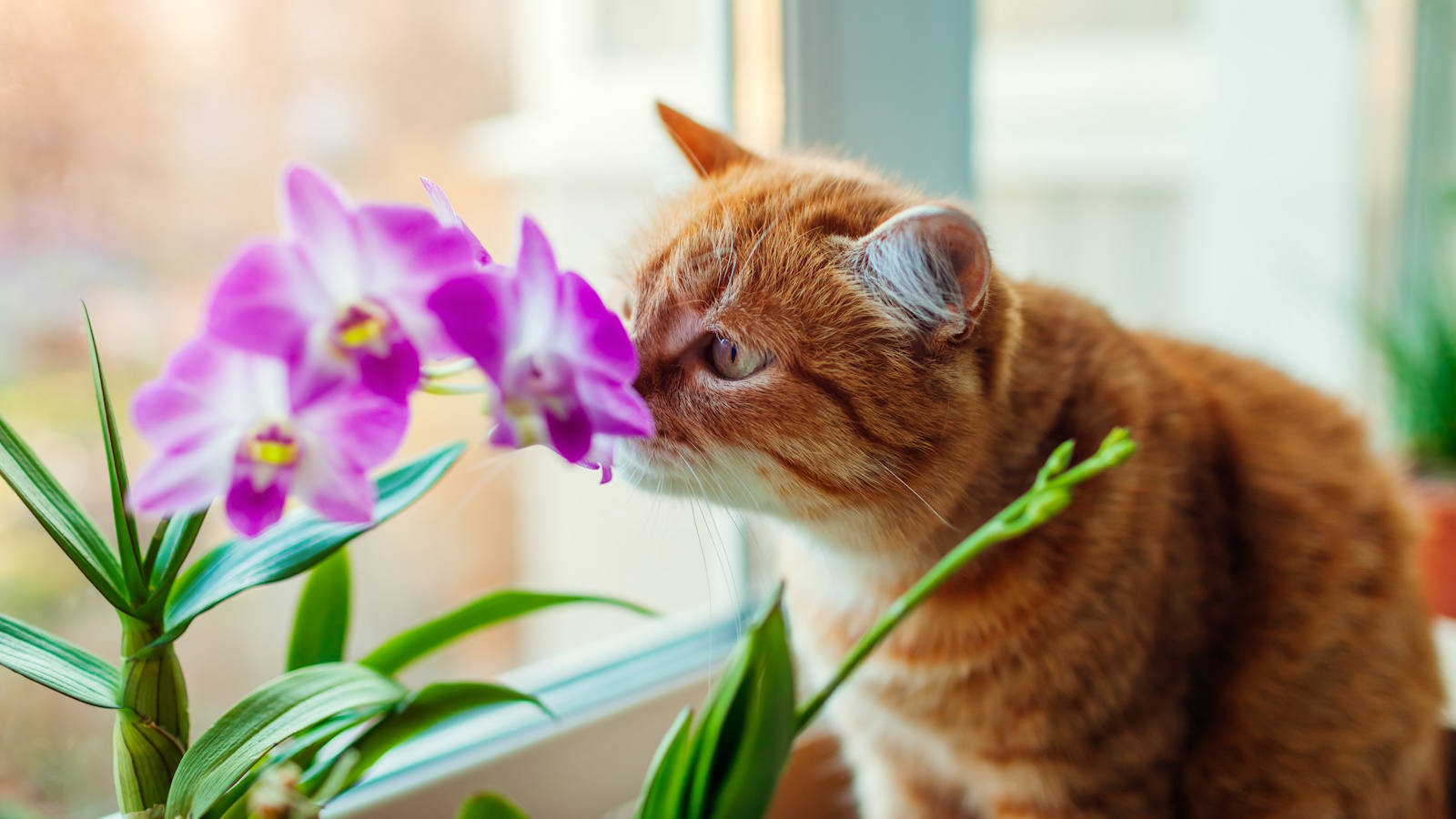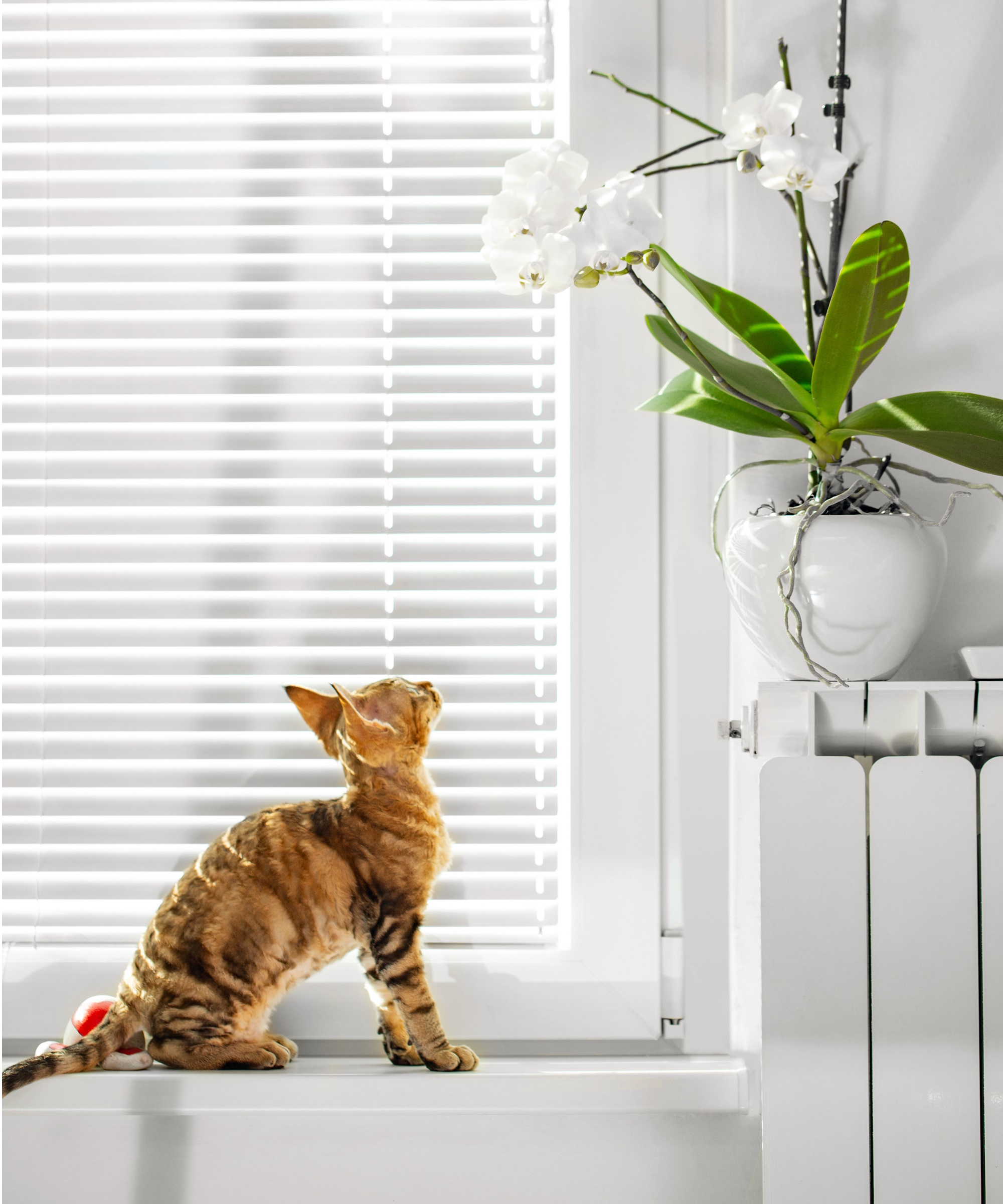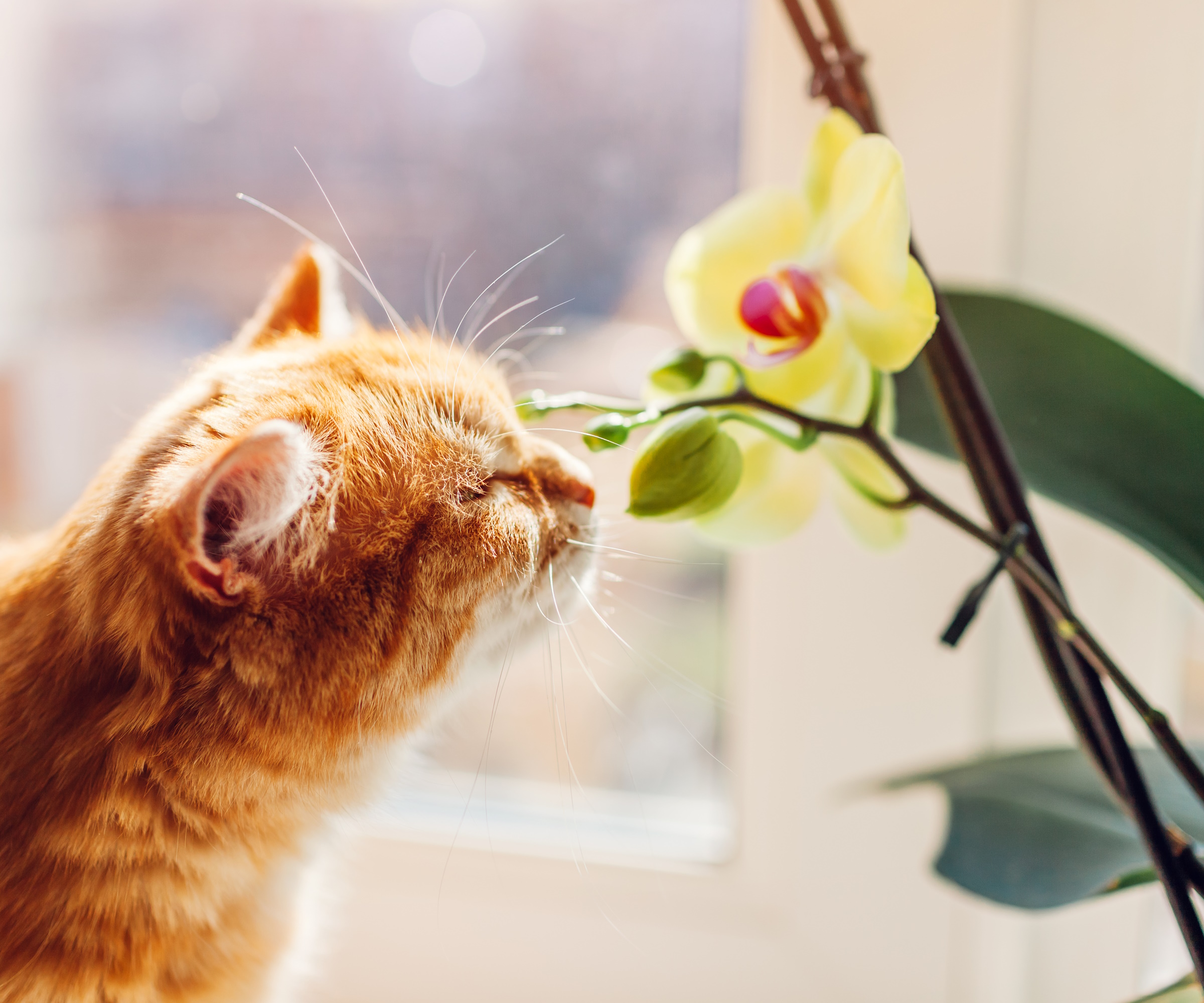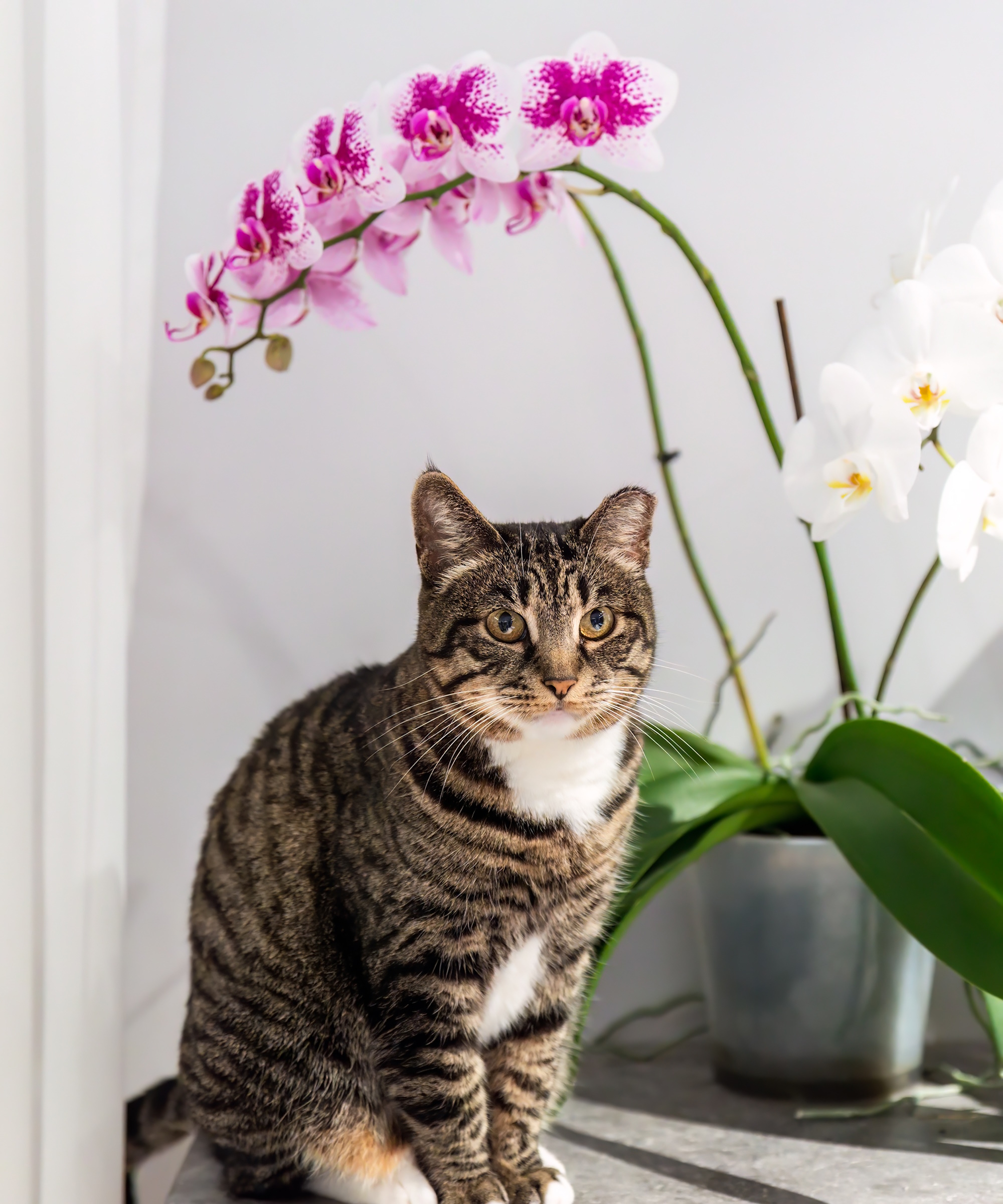Are orchids toxic to cats? Here's what veterinary experts say to be aware of when growing these plants around felines
Cats may experience a range of symptoms if they choose to nibble at these flowering houseplants


Design expertise in your inbox – from inspiring decorating ideas and beautiful celebrity homes to practical gardening advice and shopping round-ups.
You are now subscribed
Your newsletter sign-up was successful
Want to add more newsletters?

Twice a week
Homes&Gardens
The ultimate interior design resource from the world's leading experts - discover inspiring decorating ideas, color scheming know-how, garden inspiration and shopping expertise.

Once a week
In The Loop from Next In Design
Members of the Next in Design Circle will receive In the Loop, our weekly email filled with trade news, names to know and spotlight moments. Together we’re building a brighter design future.

Twice a week
Cucina
Whether you’re passionate about hosting exquisite dinners, experimenting with culinary trends, or perfecting your kitchen's design with timeless elegance and innovative functionality, this newsletter is here to inspire
If you're a pet owner, you will be familiar with the constant concern for furrier members of the family, wanting to make sure you've created a home environment that is safe for them. The plants you choose to grow in your home is a big part of this, as not all of them are safe for pets.
Fortunately, orchids are among cat safe indoor plants that are not considered toxic to felines. However, you may find that your cat experiences some negative symptoms if they do ingest indoor orchids.
We've spoken to veterinary experts to find out more about how toxic orchids are to cats, and what cat owners should be aware of if they grow orchids at home.

Are orchids toxic to cats?
The short answer is no, orchids aren't toxic to cats. However, experts advise cat owners to still keep these indoor flowering plants away from felines because ingestion could lead to some signs of illness. Here's everything you need to know about orchid toxicity to cats.
Will cats become ill from eating orchids?

Even though orchids aren't considered toxic to cats, it can still be a wise idea to stop curious pets taking a bite. Like many non-toxic plants, orchids can still make your cat unwell.
'Even though orchids are not toxic, eating any plant material can sometimes cause mild gastrointestinal upset in cats,' says Mary Helen Horn, pet health expert and President at ZIWI. 'This includes vomiting, diarrhea, drooling and loss of appetite,' she adds.
You should also watch out if you've fertilized your orchid or used any chemicals like pesticides on it that might make your cat ill.
Design expertise in your inbox – from inspiring decorating ideas and beautiful celebrity homes to practical gardening advice and shopping round-ups.
'Some cats might also be allergic to orchid pollen and have excessive sneezing or itching,' notes Dr. Kelly Cairns, pet care expert and Vice President of Medical Excellence and Education at Thrive Pet Healthcare.
Of course, some types of orchid will be more of a risk to cat's health than others, so it's important to always research the specific type of orchid you have. Moth orchids, like this white orchid from The Sill, are the most common indoor orchid and are considered non-toxic to pets.

Mary Helen Horn is a leader in the pet food industry and serves as President & Executive Director at ZIWI, a leading brand in pet nutrition worldwide. With two decades of industry experience, she is dedicated to educating pet owners about the vital role of nutrition in maintaining pet health.

Dr. Kelly Cairns is the Vice President of Medical Excellence and Education at Thrive Pet Healthcare. She holds a Doctor of Veterinary Medicine degree from Colorado State University and completed a small animal rotating internship at Cornell University. Dr. Cairns also serves as an adjunct faculty member at Lincoln Memorial University College of Veterinary Medicine and holds positions on the Chicago Veterinary Medical Association Board of Directors the dvm360 editorial board and the Wedgewood advisory board.
What to do if your cat has eaten an orchid

If your cat has eaten an orchid, don't fret. It's unlikely they will become seriously ill from it, but you should still take action to help your cat recover from any gastrointestinal symptoms.
'Ensure your cat has access to fresh water to stay hydrated, especially if experiencing vomiting or diarrhea,' says Mary. 'If symptoms persist for more than 24 hours, or if your cat shows signs of severe distress (lethargy, persistent vomiting, significant diarrhea), contact your veterinarian for advice,' she adds.
'Your veterinarian can ensure the plant material is not obstructing the stomach or intestine and rule out other causes of illness unrelated to the plant exposure,' says Kelly.
Take care to also move your orchid out of reach of your cat to prevent any further ingestion.
You might also choose to grow cat grass to give to your cat which can help ease stomach discomfort and nausea. Cat grass is also available from supermarkets, like this cat grass grow bag from Walmart.
FAQs
How do you stop cats eating orchids?
If curious felines nibble on orchids, it could cause an upset stomach or vomiting. There are a few things you can do to stop your cat eating your orchids. For example, moving your orchid out of reach, using a cat deterrent spray and providing distractions like cat toys or alternative cat-friendly plants.
Orchids aren't considered toxic to cats but it can be a good idea to keep these flowers away from any pets that are likely to take a bite to avoid mild symptoms.
You should also consider growing other pet-safe indoor plants to create an indoor jungle that is safe and enjoyable for your pets.

Tenielle is a Gardens Content Editor at Homes & Gardens. She holds a qualification in MA Magazine Journalism and has over six years of journalistic experience. Before coming to Homes & Gardens, Tenielle was in the editorial department at the Royal Horticultural Society and worked on The Garden magazine. As our in-house houseplant expert, Tenielle writes on a range of solutions to houseplant problems, as well as other 'how to' guides, inspiring garden projects, and the latest gardening news. When she isn't writing, Tenielle can be found propagating her ever-growing collection of indoor plants, helping others overcome common houseplant pests and diseases, volunteering at a local gardening club, and attending gardening workshops, like a composting masterclass.